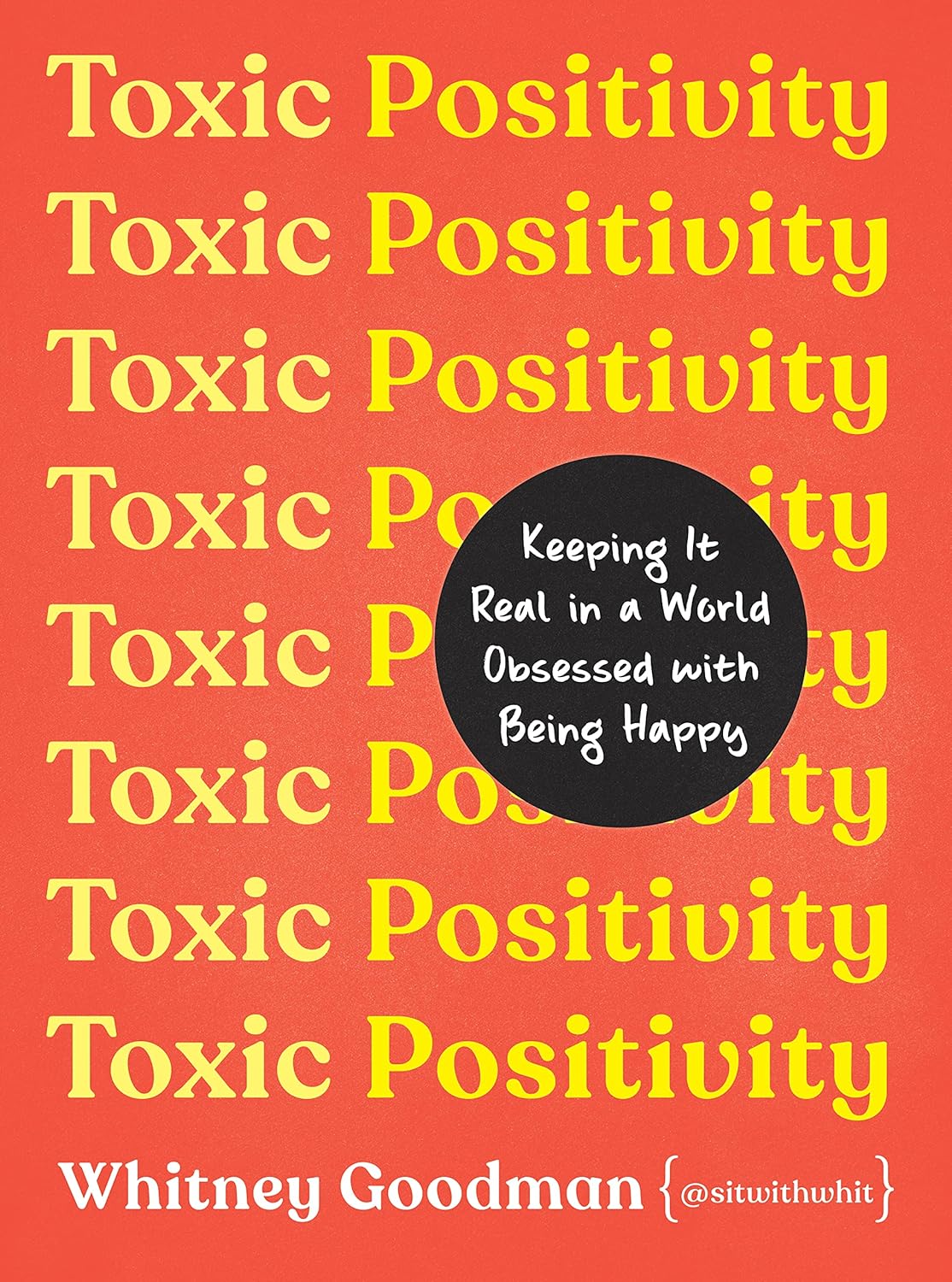Toxic Positivity: Keeping It Real in a World Obsessed with Being Happy

Positivity isn’t a bad thing. However, there’s a point where it becomes toxic. Toxic Positivity: Keeping It Real in a World Obsessed with Being Happy explores how positivity can go too far. Two other books, Bright-sided and Happier?, have addressed the topic, but there is still room for Whitman Goodman’s work. She explains that, as a licensed psychotherapist, many of her clients just want to be heard and supported. That’s at the very heart of the problem with our obsession with being happy.
Only Happiness
On the surface, it makes sense. No one likes a Negative Nelly. It’s better to be Suzie Sunshine. However, in doing this, we necessarily deny a part of who we are. We can’t be happy all the time, but there is constant pressure to only express our happiness. The tension has us denying parts of ourselves that will necessarily come back to create problems for us. (See No Bad Parts for more.)
It’s not that positivity is bad – it’s bad when that’s all that’s allowed. When we’re not talking about being more positive than negative and instead berate ourselves for the parts of us that aren’t happy, we’ve moved into toxic positivity land. Part of the problem is other people’s discomfort with our reality.
Others Distress Tolerance
Animals and humans move to reduce their distress. This makes inherent sense. However, there are times when we may need to accept distress for the greater good. We accept the distress of achy muscles after exercise for a healthier – and stronger – future. Often, when we see the responses from others to our distress, we can see how they’re trying to relieve the distress that our lack of happiness causes them.
The problem isn’t directly that we’re not happy. The problem for them is that our lack of happiness creates discomfort and distress in them. The result is a response that is less about us and more about their distress in being aware of our less happy thoughts. I mentioned in my review of Life Under Pressure how the researchers justified their decision to not attend memorial services, and how I believed these were movements away from their discomfort, not that it was necessarily best for the community.
Limits of Positive Thinking
The problem with most good myths is the kernel of truth that lives at their core. Sure, people would rather work with those who are generally positive and happy. However, the broader benefits of positive thinking are hard to confirm with research. While we find research supporting various forms of positivity – such as gratitude – the performance of this as an intervention doesn’t always exceed the performance of a distraction technique. Let me pause for a second and say it’s like saying that the children in Mishel’s famous Marshmallow Test would have been better off giving themselves a pep talk rather than distracting themselves. It sounds odd on its face.
Complaints
Complaints can serve two purposes. First, they can be an effort to change someone else’s behavior. Second, they can be an attempt to make ourselves feel better.
Persuading others to change their behavior isn’t easy, as numerous books like Influence, Pre-suasion, and Influencer make apparent. Other books like Change or Die and Immunity to Change make it clear that even when someone wants to make the change, it can still be hard. So why do we try so hard?
The answer may come in the form of the same benefits that allowed us to become the dominant biomass on the planet. In The Righteous Mind, Jonathan Haidt explains that our ability to work together is something that separates us even from our closest primate cousins. When we start working together, it’s possible for some of us to try to take advantage of others, and it seems this is why we have a strong aversion to cheating. If we think that something isn’t fair, we will often try to teach the cheater a lesson – even at great cost to ourselves. Books like The Evolution of Cooperation, SuperCooperators, and Does Altruism Exist? explain how this process works to allow for greater, sustained, beneficial cooperation.
Perhaps our desire to get someone to change their behavior is based in part on the mechanisms of fairness. So even though we may not be successful often, we keep trying.
The other side of complaining, to make ourselves feel better, rarely works out as well as we’d hope. We cry out about the injustices done to us and wait for someone to validate that we are, in fact, being treated unfairly. Sometimes this happens, and we move from seeking validation to feel better into a mode of wanting to change people’s behavior – often with very little effect.
Value Driven Life
Happiness isn’t bad, it’s just the road to get to happiness isn’t clear – and it’s not constant. As Daniel Gilbert explains in Stumbling on Happiness, we’re actually quite bad at predicting our future happiness. We believe that what we want will lead to happiness – but that only really happens when we figure out our values and live in alignment with them. (See also Start with Why and The Normal Personality.)
There’s a kind of positivity that’s real, raw, and unfiltered. It’s the kind that accepts the need for sadness, fear, worry, and a rainbow of other emotions. It’s only when we deny that other feelings deserve equal footing that we arrive at Toxic Positivity.
